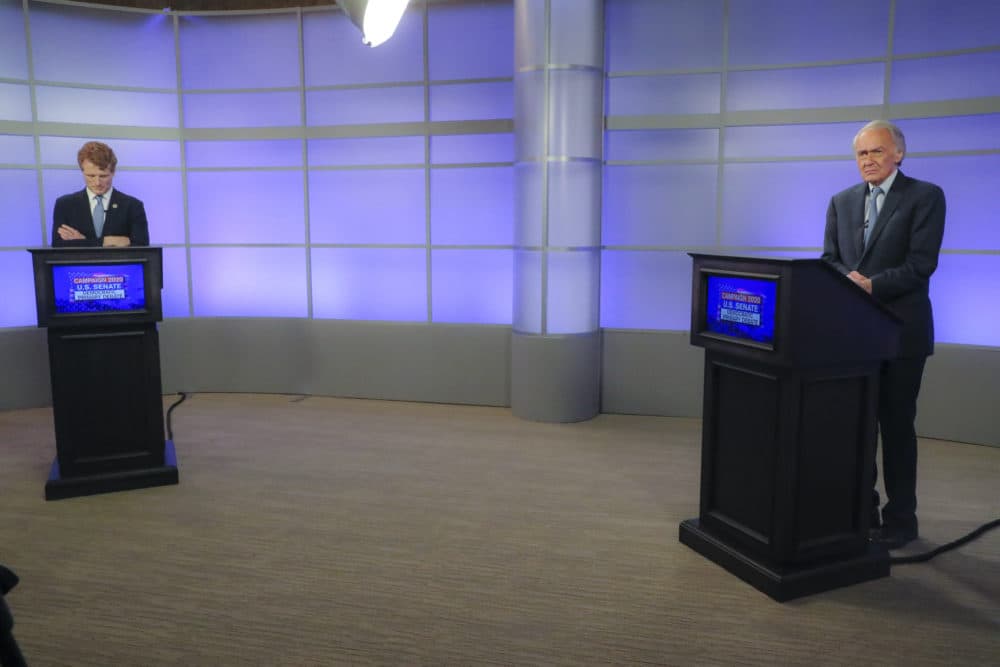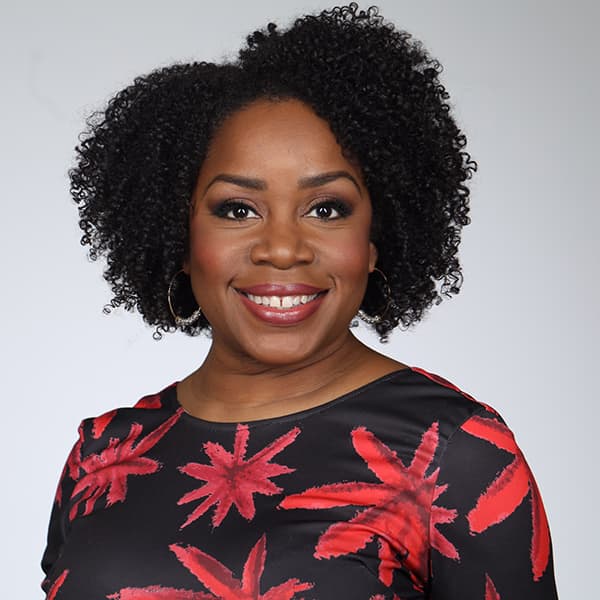Advertisement
On Police Reform Policy, There's More That Ties Markey And Kennedy Than Divides
Resume
Sen. Ed Markey and Congressman Joe Kennedy have had fiery disagreements on debate stages as the Democratic Senate primary draws nearer. But when it comes to addressing systemic racism in policing, there is more that unites them than divides.
In separate interviews with WBUR, they cite similar concerns and proposed solutions: they want fewer police responding to non-criminal calls and more resources devoted to treatment, training and community outreach. And they say issues of over-policing and racism aren't just happening in big cities, but in the suburban and rural communities they represent.
Markey said a big problem is police involvement in situations where non-force intervention is needed instead.
“We need to start by acknowledging that police departments have been tasked with responding to situations that they are not qualified to be involved in: mental health, substance issues, homelessness,” Markey said. “These are areas that require different standards of care. And our immediate response should be intervention, not arrest or incarceration.”
And that requires training, something Kennedy said he also believes in. Too often, Kennedy said, police are the first to respond to mental health emergencies.
“That’s not how we conceive, at least as of now, the role of a police officer,” Kennedy said. “Asking a police officer who has been trained a certain way to try to deescalate a circumstance where somebody is disassociated and by definition, not going to respond logically or rationally to commands — just the very nature of that response escalates the circumstance in a dangerous way that doesn’t need to happen.”
There is considerable overlap in Kennedy and Markey’s legislative proposals and priorities. Both lawmakers back the Justice in Policing Act that is set for a House vote this week. It would bar federal, state and local law enforcement from racial or religious profiling, prohibit federal law enforcement from using chokeholds and no-knock warrants, and cut funding to local police departments that don’t also ban those practices.
The bill would also limit the transfer of military-grade equipment to state and local law enforcement, mandate the use of cruiser dashboard cameras and body cameras for all federal law enforcement officers and create a national police misconduct registry.
Markey and Kennedy have also put forward their own police reform legislation.
Kennedy is a chief sponsor of the Bend Toward Justice Act, which would lower the standard of proof in criminal cases involving civil rights violations from “willfulness” to “recklessness.”
Markey filed legislation to end qualified immunity for law enforcement officers — the legal doctrine that shields public officials from personal liability for acts committed in the line of duty.
Both lawmakers told WBUR that the disconnect that often exists between police officers and those who live in the communities they patrol is at the heart of needed reforms.
“Police officers just need to be trained to understand the dynamics of the communities that they serve because their job is to serve and protect,” Markey said. “And I think we need to rebalance the allocations of resources in order to accomplish that goal.”
Kennedy says police officers he's spoken to in the suburban cities and towns he represents don't always acknowledge that profiling and over-policing that occurs in their own communities.
“The initial response from a lot of the folks is, ‘Listen there is obviously a problem, yes, and what happened to George Floyd never should have happened, and those officers should have been jailed,' and all the rest of this stuff. 'But this is Massachusetts. It just doesn't happen here,’” Kennedy said.
Kennedy pointed to incidents in some of the bedroom communities within his district that stretches from Somerset to Needham. Earlier this month, a civil rights lawsuit was filed against Brookline police alleging that officers there racially profiled and harassed a Black man who accidentally set off a security alarm in his girlfriend’s home.
And days before George Floyd was killed, a Newton man said he was stopped by police with their guns drawn and told it was because he fit the profile of a murder suspect who was described as tall and Black.
“So I’m not so sure we can say it doesn't happen here,” Kennedy said. “I don’t think that’s the case. And my instinct is that it’s actually more acute in some of those suburban communities than it is [in bigger cities] where you have some of those police officers that are actively engaging community members."
Markey said that calls for more training.
“I think a lot of the Black and brown community feel that they are in a suspect category just by driving through affluent suburbs,” Markey said. “So I think that it’s absolutely imperative that we include the training of our police and extend it out into those suburban communities, because that is where so many minorities feel that they are mistreated, that they are pulled out of their cars because it is in fact a suspicious activity to be driving while Black or brown.”
While Kennedy will vote for his Justice in Police Act, it’s unclear if Markey will get the chance to formally weigh in; there is no plan to bring the House bill to a vote on the GOP-controlled Senate. Markey said he does not support the Republican Senate policing bill introduced last week — saying it doesn’t go far enough — but he held out hope that both parties could find a way to a consensus bill.
This segment aired on June 23, 2020.
